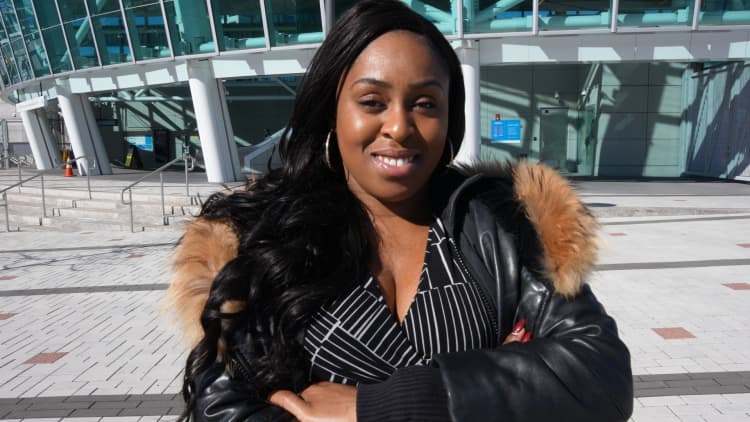A lot of workplaces these days have in-office mandates, with bosses who get upset if employees don't physically show up.
Frank Weishaupt, CEO of Boston-based video conferencing equipment maker Owl Labs, isn't one of those bosses. He actively encourages his employees to create schedules that work for them, in locations that make sense, he says — even if what makes sense is "coffee badging."
Coffee badging refers to the practice of swiping your badge into your office building, hanging around long enough to drink a morning coffee and chat with colleagues, and going right back home to get work done. At workplaces with strict office mandates, it's seen as a way to get credit for being in the office while still enjoying the benefits of remote work.
The strategy should be acceptable to bosses everywhere, says Weishaupt, who has more than 20 years of executive experience at small startups and large companies like Yahoo: If someone will benefit from the office's social interactions before needing isolation to be productive, let them do exactly that.
"We hire people to do a job. I don't hire people to watch them work," Weishaupt says. "I do love the in-office participation when we get it, but I want it to be organic."
Coffee badging may seem like an inefficient use of time, but flexible schedules like this can boost efficiency and morale. In a 2021 Gartner survey of more than 10,000 digital workers across the world, 43% of respondents said flexible working hours helped them be more productive.
"The office has a role, but mandating that you must come into the office on this day, at this time, and leave no earlier than this time — that is a dead concept," Weishaupt says. "Monitoring employee activity is a really slippery slope where you're going to lose trust."
Most bosses want to work from home as much as, if not more than, their employees do, according to a survey of 3,000 American workers and managers from software firm Checkr. It may be difficult to lean into that desire when industry giants like Amazon or Disney enact in-office policies, saying employees are more productive and connected that way.
Weishaupt has some advice for any boss feeling caught in the middle: Trust your gut and do what's right for your particular workplace.
"The office has a role, but it's more task based," he says. "If I have meetings on Wednesday morning that need to be in person, in the office, I will be. And if I choose to be in the office the remainder of the day to finish my work, I'll do it. But if I want to do it in another location, I should be able to have that flexibility."
Want to land your dream job in 2024? Take CNBC's new online course How to Ace Your Job Interview to learn what hiring managers are really looking for, body language techniques, what to say and not to say, and the best way to talk about pay.



